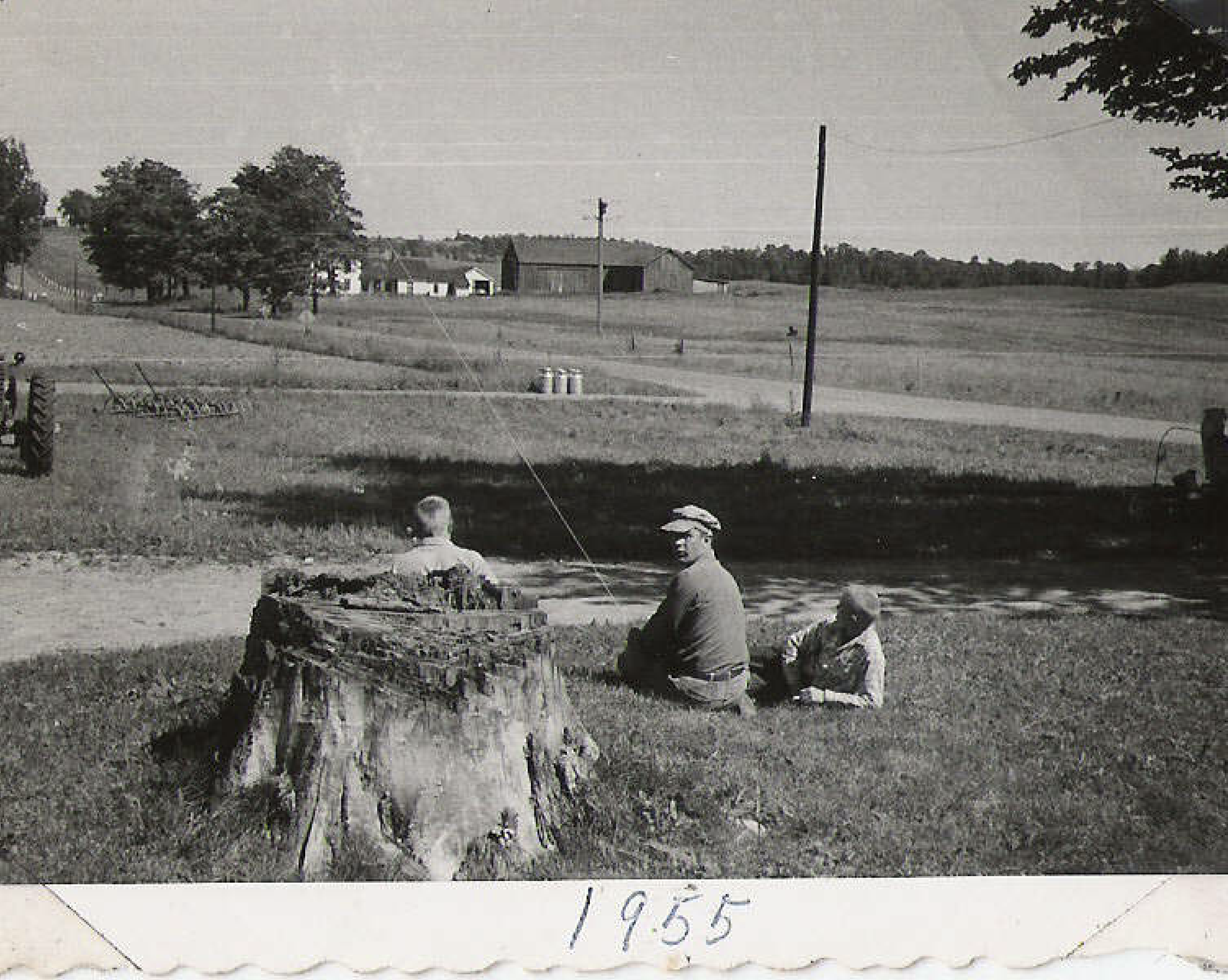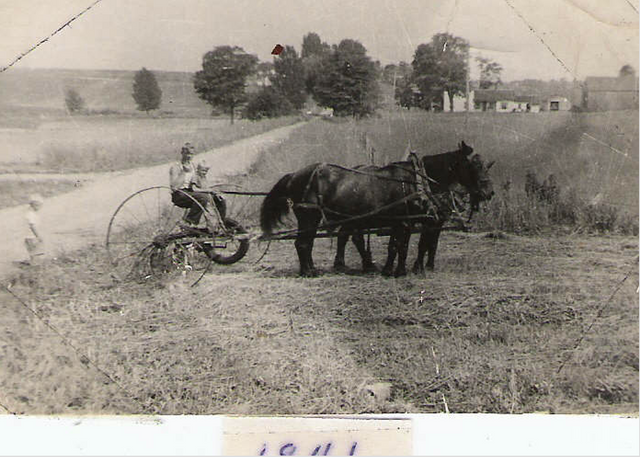There was once a time when authority was necessary for the welfare of civilization. This wasn’t because those who were outside of civilization didn’t know how to live. In fact, it’s always been quite the opposite. If you were in the wild, and didn’t know what you were doing, you died a fairly quick death. The civilized life leads to becoming a dependent. Civilization tends to promote symbiotic relationships (ideally) where self sufficiency is seen as unnecessary or even actively discouraged.
Symbiosis creates a situation where individuals no longer need to be proficient in everything needed to cover the basics (food, clothing, shelter). Early civilization broke down basic survival skills into various trades. Hunters no longer needed to make weapons for themselves. They could outsource that task. The same became the case with practically every other field such as farming, security, etc…

source
But what happens when symbiosis turns parasitic? First lets address why it becomes parasitic. Nature has a cycle where the life force flows back and forth in a pendulum between life and death. In some places of the world this can be perceived as a seasonal flow with spring bringing life and fall bringing death, but some entities gravitate toward a more permanent association with either side. For instance, taxes with death (inevitable as the saying goes), or agriculture with life.
Many are not aware of how their choices have forced a metaphysical alignment that eventually asserts control on their actions. Beware the internal dialog in your mind. This typically false narrative is often a make believe fiction of what is actually going on. We can end up serving false gods, and become disillusioned later in life. Few make it to an advanced age without regrets, and those who think they don't either lack wisdom or haven't pushed the envelope.

source
For instance, those who say “I want to serve my country” usually haven’t thought out the consequences rationally in a sound philosophical style of argumentation (most have not been sufficiently trained to know how to do that). They hold a belief, based upon a seemingly good moral position, that gets transferred into an unquestioned feeling. Then sometimes, as @adamkokesh knows all too well, this misguided loyalty can be used and you become an unwitting accomplice to the forces of death.
Cooperation does have some major benefits, but it becomes a parasitical relationship (typically toward the end of the cycle of life) when something has lost relevance. With cooperation, we have achieved together what would have been impossible to do separately. But what civilization lacks is a sound ethical principle for handling coercion. Coercion is at the root of all violence and suffering and is the parasite's answer to the loss of relevance.
Is the vote a coercive act?

source
When was the last time anyone in your family held a vote on whether you should pay for tonight’s dinner? Is it right that we accept such obviously ethically bankrupt behavior? Now if myself and a friend both voted that you should pay tonight, why is that correctly seen as us "overstepping our bounds", but when the state does this very same bad behavior, we accept this as “necessary”?
I heard this line come out of a local news report during an interview just a day ago:
“If you don’t vote, you have no cause to complain about the outcomes”.
I remember George Carlin visiting this very same issue back in the 90’s. He turned it around in the other direction saying that if you voted, then you caused the problem, and… “I, on the other hand, who was not involved in any way in creating this problem, have every right to complain about the mess you created that I had no part in”.
What happens is that the vote is a coercive act when you’re not allowed to exit the system. The forced vote has no moral authority. It only has moral authority, if everyone has the right to opt out. Then if you opted in and it didn’t go your way, you rightly have to own up to the consequences. But those of us who we’re never given any choice but to become slaves have this drivel shoved down our throats as somehow being a legitimate answer. Only the weak minded are fooled.
Without Government, who will build the roads?

(Manwaring Rd, 1955)
I can answer that question in a way that few others can say: my ancestors did. In fact I live on Manwaring Rd which is the same as my family name because my family built it. How you might ask? Well government didn't regulate as much in the early 1800's when Ephraim Manwaring settled in Mexico, NY. We were left to our own devices because government was weak. His son, James F Manwaring bought the 96 acres I currently live on March 7, 1863. His son Herb Manwaring took over for a while and his son, Ora Manwaring took over after that and now my father maintains this land. It's still very rural, and running water wasn't put in until 2009. We still only use the creek water and well water even though the town of Pulaski voted to charge us for something we don't use to the tune of $400 annually.
Back in those days roads were born from horse shoe trail wear and evened out every so often with horse drawn tilling rakes. Roads were just a natural result of traveling action and it was generally understood that neighbors took care of any really jarring ruts in the road. Here's one that my uncle Arnie, dad and uncle Bob were on in 1941...

Most of you are probably too young to even remember these days. But the pattern goes like this... First individuals solve a problem by taking it upon themselves to do so. Then after a while someone in authority steps in and says you need a license to do that. Then you apply for a permit to do the very same thing you were doing before, except with extortion fees attached.
Without Government, who will provide security?

source
Probably more accurate to say here, without government, who would steal from us? But I digress. The question you should be asking yourself is when was the last time the police (the supposed protectors of the public) actually helped you with anything? We occasionally see in the news a police officer giving a drowned child resuscitation, but these aren't regular events that aren't also something that ordinary folks do for a far less expensive price. The MSM are especially loud to note whenever the police actually do something that makes them look good, which should tell you something about the media.
Aside from that, there has never been a single instance in my life when they've been obviously helpful. Maybe they deterred some crime, but there are better ways of handling this (explained below). After the age of 5, I was dragged away from farm life into city life and by the time I was a teen, I was in one of the most dangerous neighborhoods in Syracuse. I was beaten up regularly (long story) and never did cops come to help. They always showed up after the fact in violent encounters usually to take statistics. One time they jailed one of the bullies in my neighborhood and he came back with a vengeance because they could not legally hold him any longer and I got the brunt of the blame and further beatings (until one day I was forced to settle the score on my own permanently).
The fact of the matter is that we don't have a justice system that makes victims whole again. Sometimes the state provides revenge in the form of capital punishment to those aggrieved with the loss of loved ones, but they don't make victims whole which means that this department is largely useless and fundamentally parasitic. We'd be better off providing our own security. As the department stands now, they're largely revenuers generating parasitic income from victimless crime and using civil asset forfeiture as a license to steal.
Adam Kokesh has mentioned the idea of "crime insurance" with the idea of making victims whole again as much as possible. The police are largely there to provide the appearance of order and to protect the state's more parasitic functions. They are incapable of providing protection from the most horrible things that can happen to us and can only be there in a way far less comforting than family could ever be.
Regulation is often cited as a reason why we need enforcers of the law. The reality is that all the regulators are bought and paid for since the citizens united decision of July 2010. Regulation is now largely used as a means of preventing competition and decidedly not for public safety. How's Fukushima regulating for you today? Hopefully decentralized smart contracts can help fix the damage corporatism has done. But you can forget about the vote ever being able to.
Of course, once the current system of government collapses (I couldn't prevent that even if I wanted to), I fully expect chaos to erupt in the cities. What can be expected of dependents who've never learned to be self sufficient? It can only work as a coercive group. Eventually, the cities will have to face decentralization and it will indeed by like ingesting rat poison (as Warren Buffet recently said). But that won't be bitcoin's fault.
Without Government, who will provide education?

source
The Amish. That's how it is around here where I live. In between the two big cities that I'm sandwiched in between (Pulaski, NY and Mexico, NY), the Amish have their own schools and don't go much beyond the 8th grade. As for the rest of us, with all the school shootings, like they do in the military when getting sprayed with bullets, the commander usually tells his troops to spread out. The same should be done with the schools: decentralize the school system so that only 30 or so are in a building. This would reduce costs and risk.
You can have separate buildings for separate grades. No need for those wasteful olympic swimming pools costing the taxpayers millions (we have a pond for that nearby if you wish, but who needs to swim year round)?
When schools have 2000+ students, the closeness is gone. Everyone becomes a stranger. Then if someone becomes isolated which is only typical with peer pressure interactions as training to become budding psychopaths, they have little reason not to pull the trigger. Violation of the Dunbar number is one of the primary seed conditions that can lead to terrorism. The other more primary condition is authority itself. In fact, terrorism is a byproduct of authority.
When I was young, the vast majority of teachers were women because they taught their young at home, so the state just put them in schools and sanctioned that activity while charging us taxes to do what we would have had to do for ourselves while paying nothing. Now the education is of lower quality. Lots also said about how the education system is really about breaking the spirit of the young and turning them into obedient slaves who don't think... The bottom line is that this activity was done well before government came along and ruined it.
What about the good things that Government has done?

source
Here is the flaw in that line of logic. If something is a good idea, it doesn't need coercion. The use of force is rarely necessary in situations where people can benefit and if not everyone can benefit, the idea has an overreaching scope that should be narrowed only to those people who can benefit. If it's good for some people, then those who want it can take on the responsibility of providing for it. Government causes benefits, but AFAICT always through taking from others. If something is a good idea, typically it has a scope that is local and shouldn't be applied universally.
The only exception to the use of force is when harm can be caused. This is where self defense comes in and personal boundaries play a role here. On the larger scale, such things as nuclear weapons can use consensus rules through smart contract distribution of multisig keys. This would practically assure their non use. Given the financial uselessness of such weapons, the next step would be dismantling.
How would force be used? A mass exodus into the world of crypto would render national fiat useless and therefore state authority would tend to dissolve. Those scientists previously involved in formerly foolish state projects would likely take on the necessary dismantling of anything of potential public harm and public interest would likely propel such initiatives forward voluntarily as long as we stop rewarding psychopaths with fake glory of world conquest. The blame game should help in decentralizing risk.
State players love nuclear weapons because they are a bargaining tool for power. I suspect that Kim Jong Un recently won that bargain which was most likely to be taken off the list of countries the USA was going to invade for regime change. We will likely never know the full details on why the tension was resolved favorably because it would probably show the recklessness of statehood.
There are no guarantees, but at least we can decentralize the risks instead of piling them on making mass extinction more likely. Long term, the choice is decentralization or extinction.
The Revolution won't be Televised, and the Cities will be Decentralized

source
Bitcoin is at the epicenter of the paradigm shift. Now we're in a situation where we can't imagine how anything can be done without government. It used to be the case that authority was necessary. Note I said "used to be", but not any longer because Satoshi Nakamoto provided the solution to the Byzantine generals problem without the use of central authority. The technology underlying the Bitcoin protocol has within it, the ability to fix what the vote cannot; which is the parasitical laying to waste of nearly everything by government.
The two party system has failed to change anything because it's part of a morally corrupt method of human interaction that shows no respect for boundaries that should actually matter. Instead, government tries to confuse us with legal fictions that have no reality in nature. Now nature is obsoleting the current governmental forms of coercion. The door has been opened, but many in the west fail to perceive that the technology that underlies bitcoin renders the political dog and pony show irrelevant. However, the third world is quite aware that their 1776 moment is coming in declaration of independence from the US military industrial complex.
We live in pivotal times. These next few years will see changes that I've waited to see most of my life. Down one road lies a digital panopticon. Another road leads to freedom. Which will you choose?

3FwxQsa7gmQ7c1GXJyvDTqmT6CM3mMEgcv

Humans and even a lot of animals typically have some form of "government". I think we need to reduce the size of government and improve it.
Downvoting a post can decrease pending rewards and make it less visible. Common reasons:
Submit
Curated for #informationwar (by @wakeupnd)
Relevance: Sharing the truth and countering government lies.
Downvoting a post can decrease pending rewards and make it less visible. Common reasons:
Submit
Very true! i agree with you
Downvoting a post can decrease pending rewards and make it less visible. Common reasons:
Submit
You said sooooooo many things that were spot on. I'm so glad I started following you!
Downvoting a post can decrease pending rewards and make it less visible. Common reasons:
Submit
I also want a free life, so that there is order, that there will always be finances ... A person needs a lot of different things. But people choose their own government and do not think about what will happen next.
Downvoting a post can decrease pending rewards and make it less visible. Common reasons:
Submit
Need money and plan to make civilization. The civilization also performs many important for the development of a country. It takes a lot of time to build human sympathy civilization), it is necessary to work hard to sustain it.
Downvoting a post can decrease pending rewards and make it less visible. Common reasons:
Submit
civilisation and states are often used to mean the same but they are not. Civilisation means human coordination and acting together to achieve a goal. States are doing that by claiming a monopoly on force.
Downvoting a post can decrease pending rewards and make it less visible. Common reasons:
Submit